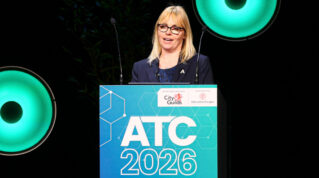Necessity is the mother of invention, according to the proverb. But the UK’s creative sector needs no advice as far as invention is concerned.
These industries are an economic superpower, worth more than the aerospace, automotive, life sciences, and oil and gas sectors combined. And that’s before we even consider the immeasurable joy their output brings to our lives in the realms of music, art, architecture, television, film and fashion.
Nor does this account for the extraordinary potential they are blessed with. The government certainly recognises this, and plans to boost investment in the creative industries from £17 billion to £31 billion by 2035.
But the faster the creative sector grows, the more it’s exposed to skills shortages. These are particularly acute in the higher-level professional and associate roles, standing at 41 per cent and 31 per cent respectively, according to the Department for Education.
The creative industries have many highly skilled positions, and nearly 78 per cent of employers report trouble finding talent. Moreover, two-thirds of employers in the creative sector say they expect their employees will need to upgrade their skills. The sector’s strength, in this respect, could become a weakness.
If we are to address skills shortages, then we need a long-term strategy. It’s vital in a sector that’s both vulnerable to, and at the forefront of, developments in artificial intelligence. New jobs will be created; old ones made superfluous.
Easing restrictions on high-skilled immigration would, of course, help here. So, too, would tailored university courses that close key skills gaps. But if we are serious about a sustainable solution, we must look to apprenticeships – traditionally the most effective way for employers to shape and retain talent.
Unfortunately, when compared to other sectors, take-up of creative apprenticeships is low. They account for fewer than one per cent of all new apprenticeship starts. Since 2019/2020, just 11 per cent of these have been at the higher technical and professional levels which is precisely where the shortages are most acute.
However, poor take-up should not be cause for disappointment but a reason for optimism. Reform the apprenticeship system and we can tackle skills shortages once and for all.
We can encourage young people, especially those from less advantaged backgrounds, into an industry that has long underserved them. A boon for the exchequer, too. Inequality costs Britain £106.2 billion annually, and for every £1 invested in apprentices, the economy gets £21 back.
Fortunately, the government is committed to reform. A new growth and skills levy is planned to revamp the current system. This was also the spur for a series of roundtables held by Birmingham City University and the University of the Arts London – two of Britain’s biggest creative education institutions.
Our new report tackles creative apprenticeships head-on. It highlights key issues, from the ubiquity of short-term contractual work to the lack of employer awareness about the breadth of apprenticeships available, and offers practical solutions.
First, we need a better understanding of demand and provision. A creative skills observatory, delivered through Skills England, could provide this. It would allow us to shape technical and professional provision that responds quickly to future needs, and finally deliver the high-quality training the sector lacks. We also need to harness regional strengths. The kind of provision needed in London, for instance, will differ greatly from that in Manchester.
We must also empower employers. Making more funding available through the growth and skills levy is one route. But we must also – more broadly – take a skills-first, apprenticeship-led approach that gives employers the tools and incentives to invest in talent.
Britain’s creative sector is one of its greatest assets. But in changing times, we must urgently address skills shortages if it is to fulfil its potential. That means more skills, more apprenticeships, and radical reform – so our creative industries don’t just survive, they thrive.
This article was also co-authored by Dr Caroline Sudowrth, Director, STEM Explored Ltd

















Your thoughts